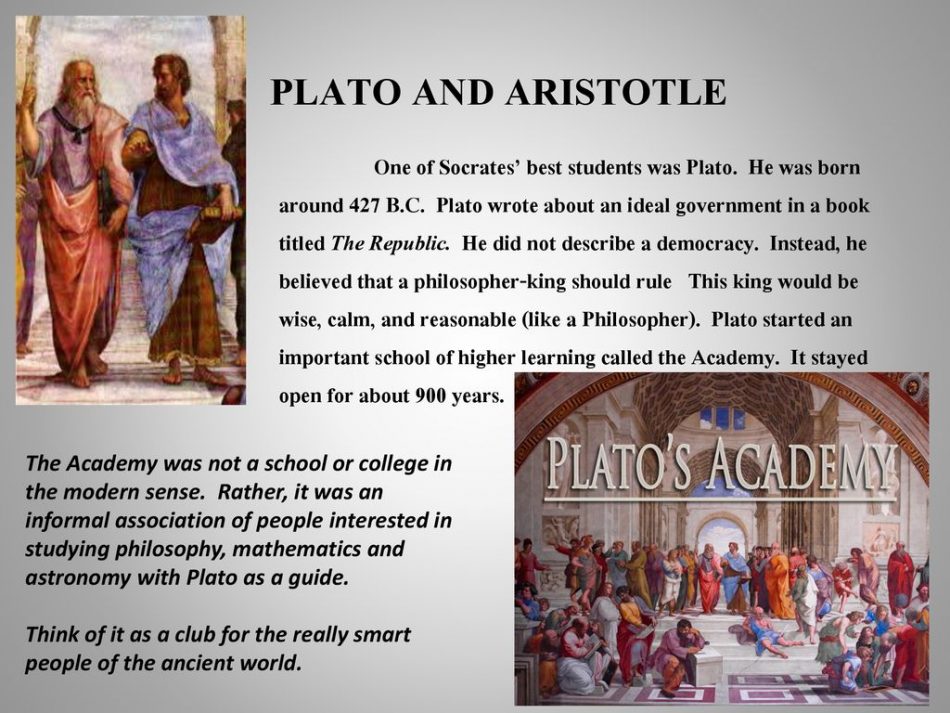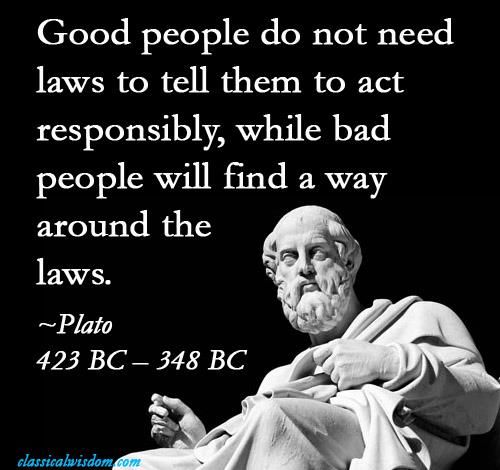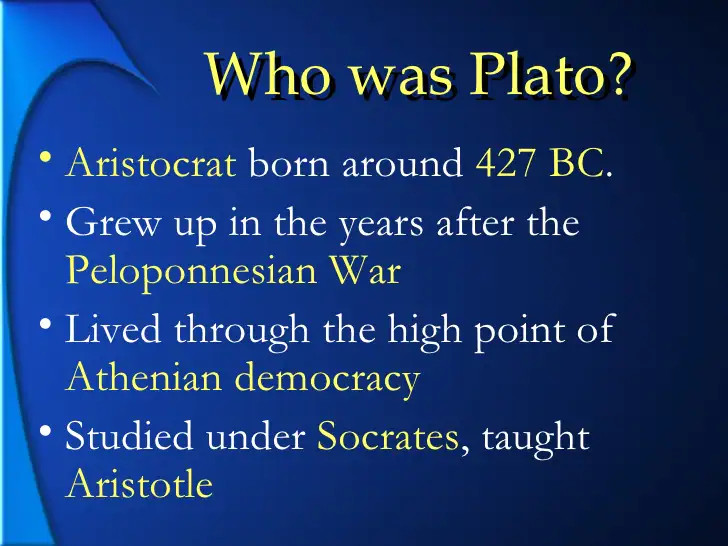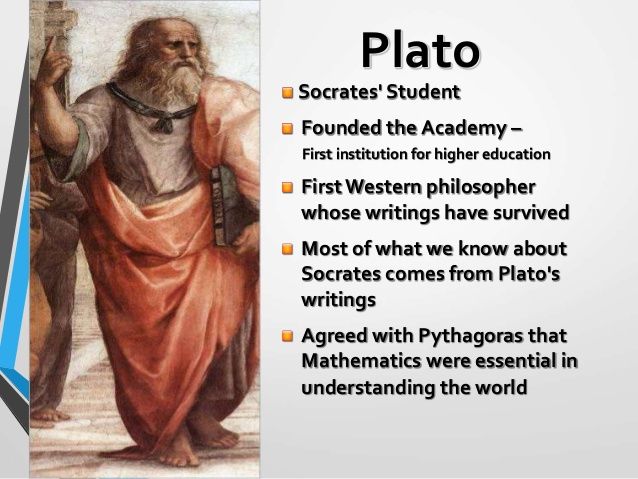
One of Socrates’ best students was Plato. He was born around 427 B.C. Plato wrote about an ideal government in a book titled The Republic. He did not describe a democracy. Instead, he believed that a philosopher-king should rule This king would be wise, calm, and reasonable (like a Philosopher). Plato started an important school of higher learning called the Academy. It stayed open for about 900 years. The Academy was not a school or college in the modern sense. Rather, it was an informal association of people interested in studying philosophy, mathematics and astronomy with Plato as a guide. Think of it as a club for the really smart people of the ancient world.
Page Description
Discover Plato’s philosophy
and his impact on Western thought.
Explore his teachings, works, and ideas.

Aristotle and Plato: A Dialogue Across Generations
The relationship between Aristotle and Plato represents one of the most compelling intellectual dialogues in history. As Plato’s most renowned student, Aristotle inherited a tradition of deep philosophical inquiry while forging his own distinct path. Though united by a quest for understanding, their approaches often diverged, with Plato focusing on ideal forms and Aristotle emphasizing empirical observation and practical applications.
This dynamic interplay between master and student laid the foundation for Western thought, addressing timeless questions about reality, ethics, politics, and knowledge. Exploring their intellectual relationship reveals how philosophical debates not only shape individual thinkers but also guide the trajectory of human understanding across generations.
Aristoteles en Plato: Een Dialoog Door Generaties Heen
De relatie tussen Aristoteles en Plato vormt een van de meest fascinerende intellectuele dialogen in de geschiedenis. Als Plato’s beroemdste leerling erfde Aristoteles een traditie van diepe filosofische reflectie, terwijl hij zijn eigen unieke weg insloeg. Hoewel ze verenigd waren in hun zoektocht naar begrip, liepen hun benaderingen vaak uiteen: Plato richtte zich op ideale vormen, terwijl Aristoteles de nadruk legde op empirische observatie en praktische toepassingen.
Deze dynamische wisselwerking tussen meester en leerling legde de basis voor de westerse filosofie en behandelde tijdloze vragen over realiteit, ethiek, politiek en kennis. Het verkennen van hun intellectuele relatie onthult hoe filosofische debatten niet alleen individuele denkers vormgeven, maar ook de koers van het menselijk begrip door de eeuwen heen sturen.
Plato was a Greek philosopher and one of the most important figures in the development of Western philosophy. Here are some key points about Plato:
Life and Background: Plato was born in Athens in 427 or 428 BC, and died in 347 BC. He was born into an aristocratic family and his father, Ariston, was a descendant of the last king of Athens.
Philosophy: Plato was a student of Socrates and is known for his philosophy, which was based on the idea that there are two separate realms: the visible world and the world of Forms. He believed that the world we experience with our senses is an imperfect copy of the perfect world of Forms.
Writings: Plato wrote over 30 dialogues, which are considered some of the most influential works in Western philosophy. These dialogues feature Socrates as the main character, and often deal with philosophical questions such as the nature of reality, justice, and the soul.
Academy: Plato founded the Academy in Athens, which was the first institution of higher learning in the Western world. The Academy was a center of learning for over 900 years and was a major influence on the development of Western philosophy.
Political Theory: Plato’s most famous work, The Republic, is a treatise on political theory. In it, he describes his ideal society, which is ruled by philosopher-kings who are guided by the principles of wisdom and justice.
Legacy: Plato’s ideas have had a lasting impact on Western philosophy and continue to be studied and debated today. His work has influenced thinkers such as Aristotle, Descartes, and Kant, and his ideas continue to be relevant to modern discussions of philosophy, politics, and education.
Forbidden Plato Quotes. These Wisdom Everyone Should Know!
Back to menu IMPORTANT CONTENT
Plato was a Greek philosopher born in Athens during the Classical period in Ancient Greece. He founded the Platonist school of thought and the Academy, the first institution of higher learning on the European continent
1 PLATO – Incredible Life Changing Quotes [Stoicism] Part 1
27 jan. 2020
Presented By Jordan Mulligan
Speech by – EveryDayStoic
Music by – Borrtex
2 PLATO – Incredible Life Changing Quotes [Stoicism] Part 2
28 jan. 2020
4 Filosofie – Plato
4 Is Justice For The Strong? | Plato’s Republic
20 dec. 2019
Is it always better to be just than unjust? That is the central question of Plato’s Republic, discussed here by Melvyn Bragg and guests. Writing in c380BC, Plato applied this question both to the individual and the city-state, considering earlier and current forms of government in Athens and potential forms, in which the ideal city might be ruled by philosophers. The Republic is arguably Plato’s best known and greatest work, a dialogue between Socrates and his companions, featuring the allegory of the cave and ideas about immortality of the soul, the value of poetry to society, and democracy’s vulnerability to a clever demagogue seeking tyranny.
With Angie Hobbs, Professor of the Public Understanding of Philosophy at the University of Sheffield; MM McCabe, Professor of Ancient Philosophy Emerita at King’s College London; and James Warren, Fellow of Corpus Christi College and a Reader in Ancient Philosophy at the University of Cambridge. Producer: Simon Tillotson.
READING LIST:
Julia Annas, An Introduction to Plato’s Republic (Oxford University Press, 1998)
Rachel Barney, Tad Brennan and Charles Brittain, Plato and the Divided Self (Cambridge University Press, 2012)
G. R. F. Ferrari (ed.), The Cambridge Companion to Plato’s Republic (Cambridge University Press, 2007)
Angela Hobbs, Plato and the Hero: Courage, Manliness and the Impersonal Good (Cambridge University Press, 2000)
Angela Hobbs, Plato’s Republic (Ladybird Expert Book, to be published 2018)
Thomas More (trans. Dominic Baker-Smith), Utopia 1516 (Penguin, 2012)
Grethe B. Peterson (ed.), The Tanner Lectures on Human Values: 18 (University of Utah Press, 1997), especially ‘Culture and Society in Plato’s Republic’ by Myles Burnyeat
Gerald A. Press (ed.), The Continuum Companion to Plato (Bloomsbury, 2012)
Gerasimos Santas (ed.), The Blackwell Guide to Plato’s Republic (Wiley-Blackwell, 2006)
Malcolm Schofield, Plato (Oxford University Press, 2006)
5 Philosophy of Plato (Part 1: Idealism)
28 jan. 2016
Platonic philosophy of “Idealism” for Humanities class (Dr. George Brooks) Note: Several viewers have brought to my attention the audio problem of this only coming out of one speaker–my apologies, these videos were made by digital media students at the college and are of uneven quality. It is better to watch this with your internal computer speakers rather than under headphones or any stereo set-up. I will try to get this fixed when the pandemic is over and I can return to campus.
6 Philosophy of Plato (Part 2: Allegory of the Cave)
7 Intro to Plato – Peter Kreeft (Lecture 1)
18 okt. 2016
8 Foundations of Platonism – Peter Kreeft (Lecture 2)
9 Aristotle, Plotinus, and Augustine – Peter Kreeft (Lecture 3)

Wise Quotes of Plato | Quotes, aphorisms, wise thoughts
23 nov. 2021
2 jan. 2022
11 Keith Ward – Plato and his Legacy
Gepubliceerd op 25 okt. 2016
View full lesson: http://ed.ted.com/lessons/plato-s-bes…
Check out Wisecrack’s YouTube channel here: https://goo.gl/A5vb5K
Few individuals have influenced the world and many of today’s thinkers like Plato. He created the first Western university and was teacher to Ancient Greece’s greatest minds, including Aristotle. But even he wasn’t perfect. Along with his great ideas, Plato had a few that haven’t exactly stood the test of time. Wisecrack gives a brief rundown of a few of Plato’s best and worst ideas.
Lesson by Wisecrack, animation by Aaron, Tom and Mathias Studios.
12 Keith Ward – Plato and his Legacy
5 jun. 2015
13 Understanding Plato with Pierre Grimes
4 mei 2018
Pierre Grimes, PhD, is a specialist in classical Greek philosophy. He is the founder of the American Philosophical Practitioners Association. He is also founder of the Noetic Society in the Los Angeles area. He is author of Philosophical Midwifery: A New Paradigm for Understanding Human Problems, Socrates and Jesus: A Dialogue in Heaven, and Unblocking: Removing Blocks to Understanding. He is also a decorated veteran of the second world war.
Here he shares his passion for Plato as his greatest spiritual inspiration. He distinguishes between the Socratic dialogue and the Platonic dialectic. He highlights passages from some of Plato’s dialogues. He describes the similarities between the emphasis on the “self” in Plato and in Buddhism, and laments that modern, western philosophy has lost this emphasis on self-knowledge.
New Thinking Allowed host, Jeffrey Mishlove, PhD, is author of The Roots of Consciousness, Psi Development Systems, and The PK Man. Between 1986 and 2002 he hosted and co-produced the original Thinking Allowed public television series. He is also past-president of the non-profit Intuition Network, an organization dedicated to creating a world in which all people are encouraged to cultivate and apply their inner, intuitive abilities.
(Recorded on April 16, 2018)
For a complete, updated list with links to all of our videos — as well as many other opportunities to engage with and support the New Thinking Allowed video channel — please visit the New Thinking Allowed Foundation at http://www.newthinkingallowed.org.
14 Homer and Plato with Pierre Grimes
3 okt. 2018
Pierre Grimes, PhD, is a specialist in classical Greek philosophy. He is the founder of the American Philosophical Practitioners Association. He is also founder of the Noetic Society in the Los Angeles area. He is author of Philosophical Midwifery: A New Paradigm for Understanding Human Problems, Socrates and Jesus: A Dialogue in Heaven, and Unblocking: Removing Blocks to Understanding. He is also a decorated veteran of the second world war.
Here he maintains that, unlike in Plato, deep psychotherapeutic insights can be found in Homer. In fact, Pierre’s development of “philosophical midwifery” is largely based on Homer. Plato was more of a pure mystic. Both Homer and Plato probably participated in the Eleusinian mysteries. In the Republic, Plato argues that Homer should not be taught to young children. Instead, the philosopher kings should make up “noble lies” for the benefit of the people.
New Thinking Allowed host, Jeffrey Mishlove, PhD, is author of The Roots of Consciousness, Psi Development Systems, and The PK Man. Between 1986 and 2002 he hosted and co-produced the original Thinking Allowed public television series. He is also past-president of the non-profit Intuition Network, an organization dedicated to creating a world in which all people are encouraged to cultivate and apply their inner, intuitive abilities.
(Recorded on September 10, 2018)
For a complete, updated list with links to all of our videos — as well as many other opportunities to engage with and support the New Thinking Allowed video channel — please visit the New Thinking Allowed Foundation at http://www.newthinkingallowed.org.

15 Baby Pig Fresh Pork Sausage Prank
30 mei 2011